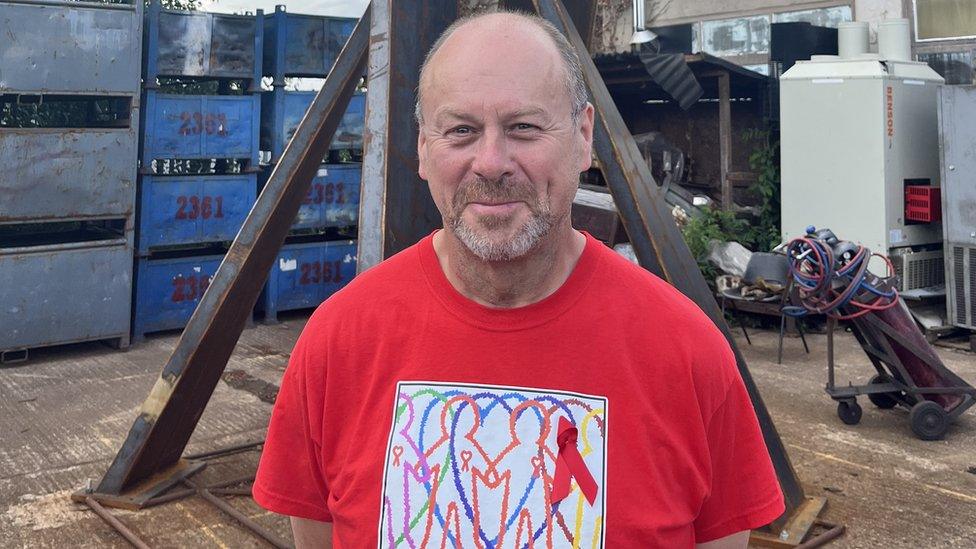Birmingham Pride at 25: 'No-one wanted Pride back then'
- Published
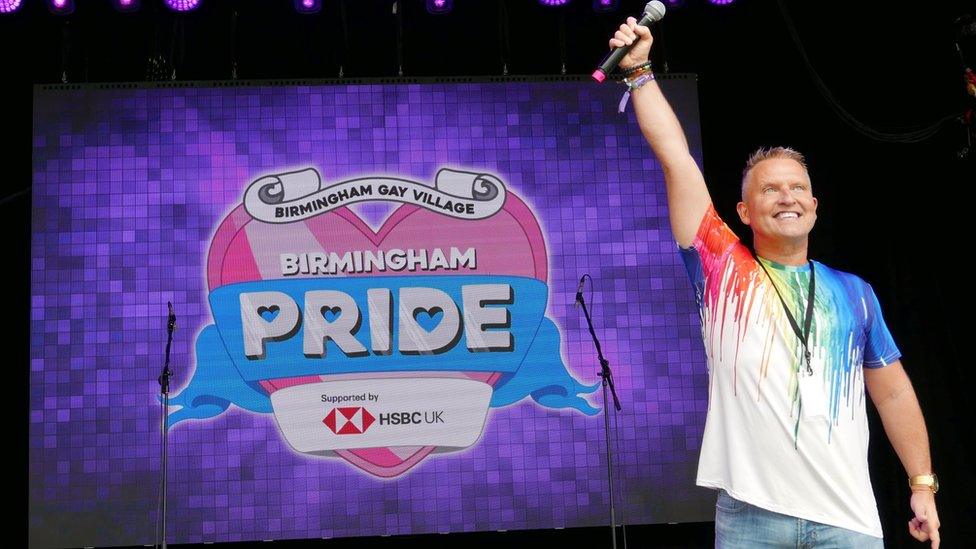
Founder Phil Oldershaw has been invited to host the event this year to mark its 25th anniversary
This weekend marks the 25th Birmingham Pride festival, with thousands expected to descend on the city to celebrate the LGBTQ+ community.
Now an unmissable event with dozens of high profile sponsors, the festival's founders Bill Gavan and Phil Oldershaw said it was not always that way.
Pride was "the last thing they wanted on the streets of Birmingham back then," recalls Mr Gavan.
"This was a long process, but we knew that if we could convince them [officials] to let it go ahead, we would have something to be proud of."
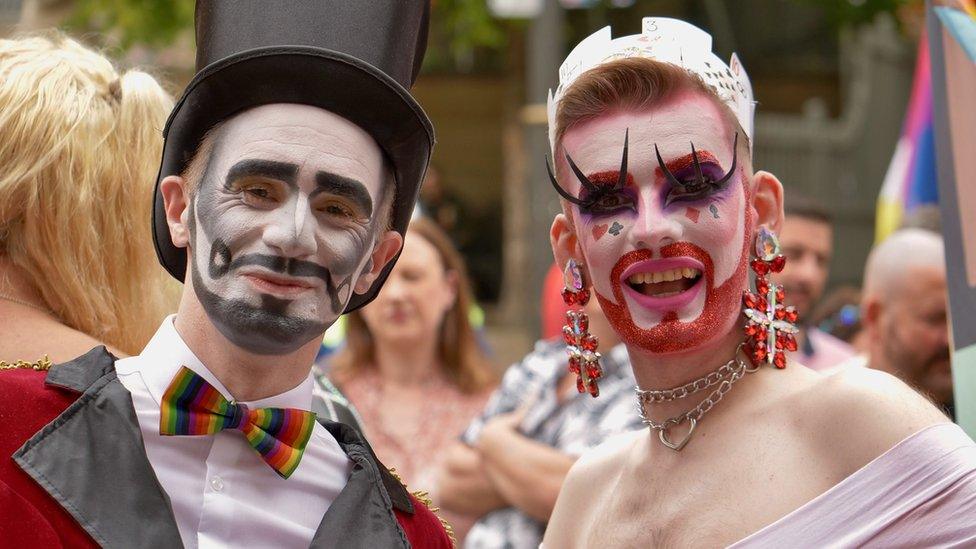
An estimated 75,000 people take part in Birmingham's Pride march each year
The duo ran competing bars in the 90s - Mr Gavan owned Subway City club in the Jewellery Quarter while Mr Oldershaw's domain was the Nightingale Club, still the heart of Birmingham's Gay Village.
They would regularly meet for a coffee in Mr Oldershaw's bar, which is where in they began to hatch a plan.
At the time, Birmingham, the UK's second largest city in terms of population, was one of few major cities to not have a Pride festival. London Pride dates back to 1972 and Manchester has marked it since 1988.
"In 1996, although being gay was a more common thing, what was important for us was to be heard," Mr Oldershaw said.
"I didn't understand why being gay had to be so back street, knocking on doors and things like that."
Instead they dreamed of a "bold and brash" party in the streets, open to everybody.
"Bill said 'let's do it, how difficult could it be?'"
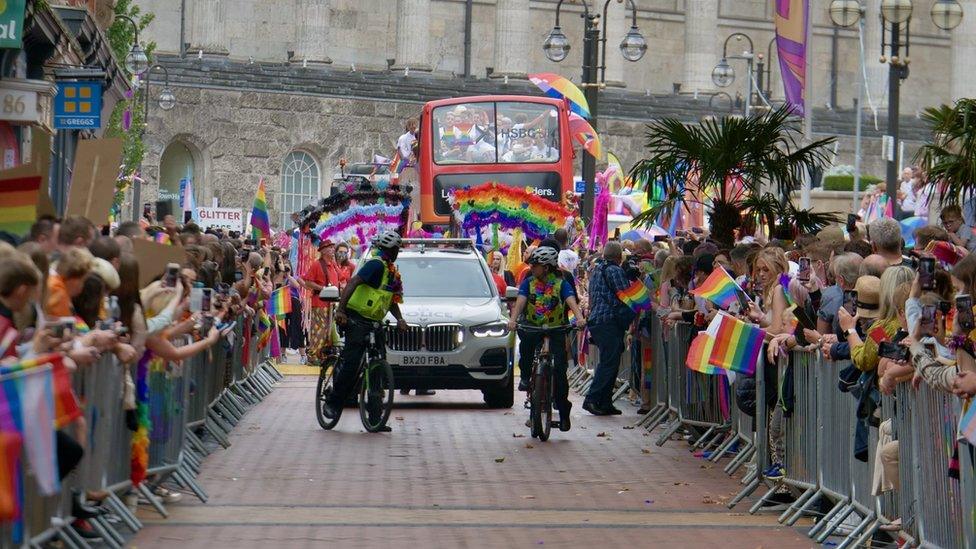
West Midlands Police and the council now play a key role in Birmingham Pride
Fairly difficult, it turned out, but not impossible.
"From day one we struggled with the council, the police," he said. "No one wanted Pride back then."
"We were hit with many reasons why it couldn't happen and why they [city leaders] didn't want to support it," Mr Gavan, who is now a Labour councillor, added.
"We gave them many reasons why we should let them have it in our small part of town and threatened to protest across the city unless they supported us.
"There was no reason why this couldn't really happen."
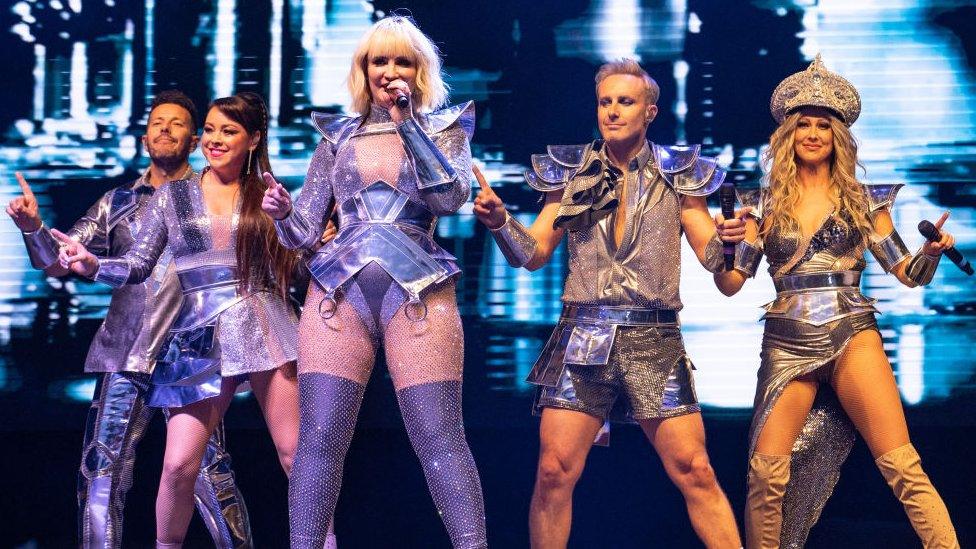
Steps are top of the bill for the weekend event, alongside Becky Hill and Mel C
Once permission was granted, the next step was to fundraise £40,000. Bucket collections on the doors of nightclubs as well as an "outrageous plush camp" charity ball got hands in pockets.
Acts had to be "sweet talked" into performing for expenses only.
Organisers had hoped about 3,000 people might show up to the event launch - in actual fact, about 15,000 did.
"It was electrifying, the energy was something else," said Mr Oldershaw. "They were partying in the streets, laughing, dancing, kissing and showing affection in the open air.
"It was amazing, incredible and history-making all at once."
Why Pride still matters and remains important in Birmingham
Twenty-five years on and Birmingham Pride has changed.
Now one of the UK's biggest pride events, this year's headline acts are global stars like Becky Hill, Steps and Mel C; 75,000 people take part in the parade and it is no longer community-run.
"Who would have thought we created something that would have such legacy and is still going strong today?," said Mr Gavan.
"Pride and celebration is important. There is still stigma and prejudice in the world, we should very much keep flying the flag."
Mr Oldershaw said he was "immensely proud" of the festival and their role in shaping it over the years.
"We didn't only do this for our own community, we did this for Birmingham."

Follow BBC West Midlands on Facebook, external, Twitter, external and Instagram, external. Send your story ideas to: newsonline.westmidlands@bbc.co.uk, external
Related topics
- Published23 September 2022
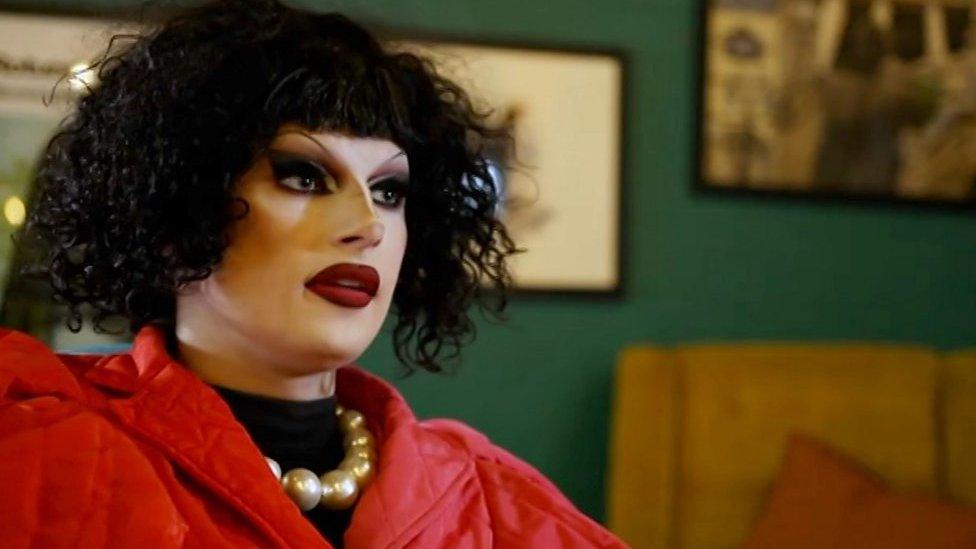
- Published2 September 2022
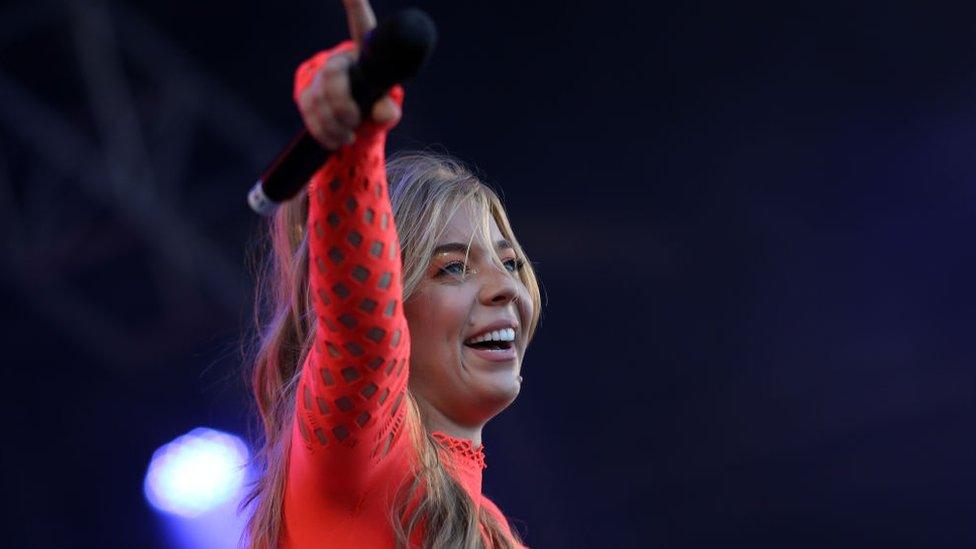
- Published25 September 2021
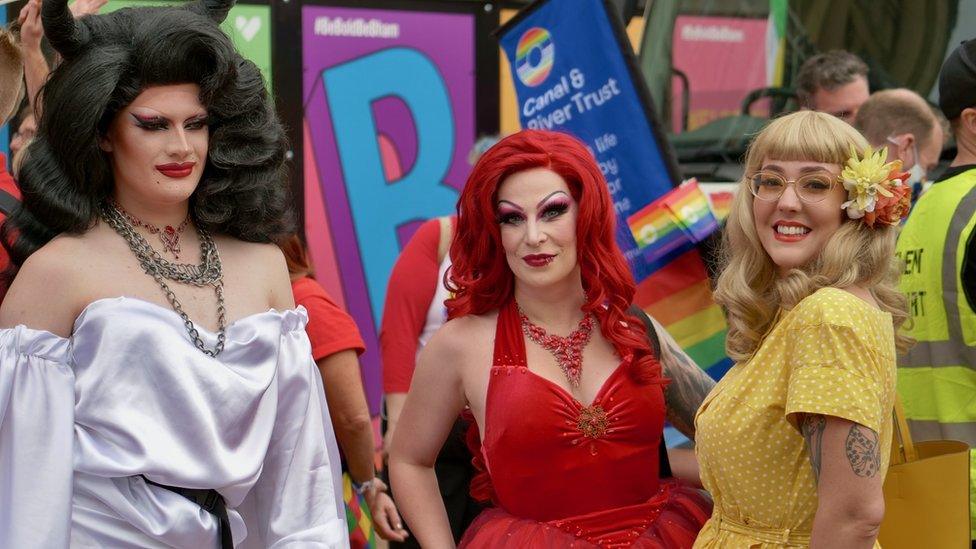
- Published1 July 2022
